
Magic comes to Red Apple in Phillipston
PHILLIPSTON — Red Apple Farm will become home to faeries, knights, trolls and lots of magic on the first weekend in May.The Enchanted Orchard Renaissance Faire will take place on May 4-5. Richard and Rajuli Fahey of Winchendon have been to the farm a...
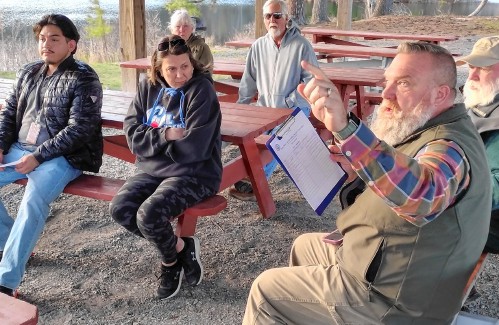
Plan calls for upgrades to Silver Lake in Athol
ATHOL – Residents and town officials joined members of the Open Space & Recreation Commission for a walking tour of Silver Lake Park Tuesday night.The purpose of the meeting, which convened at the park’s pavilion, was to discuss a master plan for the...
Most Read
 Alumnae gather in Athol to honor Spelman College founders
Alumnae gather in Athol to honor Spelman College founders
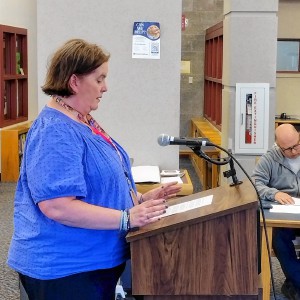 Athol Royalston School Committee approves budget on second attempt
Athol Royalston School Committee approves budget on second attempt
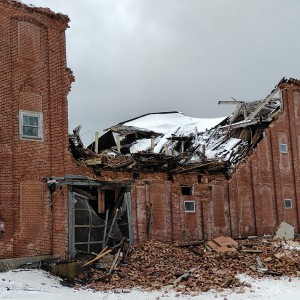 White’s Mill development proceeds following roof cave-in
White’s Mill development proceeds following roof cave-in
 Orange man gets 12 to 14 years for child rape
Orange man gets 12 to 14 years for child rape
 A Page from North Quabbin History: The story of the Millers River
A Page from North Quabbin History: The story of the Millers River
 Senate adds bills to reform electric industry
Senate adds bills to reform electric industry
Editors Picks
 Sportsman’s Corner: Turkey time
Sportsman’s Corner: Turkey time
 Equity, income concerns flagged in free college debate
Equity, income concerns flagged in free college debate
 Franklin County youth tapped to advise governor’s team
Franklin County youth tapped to advise governor’s team
 Athol Police Logs: March 27 to April 10, 2024
Athol Police Logs: March 27 to April 10, 2024
Sports

On The Ridge with Joe Judd: What time should you turkey hunt?
If I had a dime for every time someone asked me the best time to hunt turkeys during a season, I’d have a bucket full of dimes. Think about it for a minute, what are the factors that turkey hunters should be considering to best utilize their time when...
 High Schools: Jakhia Williams propels Turners girls track past Athol
High Schools: Jakhia Williams propels Turners girls track past Athol
 Softball: Jaylynn Chapalonis pitches Athol past Pioneer (PHOTOS)
Softball: Jaylynn Chapalonis pitches Athol past Pioneer (PHOTOS)
 Bulletin Board: Greenfield Post 81 holding tryouts on May 4th, 5th and 11th
Bulletin Board: Greenfield Post 81 holding tryouts on May 4th, 5th and 11th
 High schools: Skyler Steele powers Frontier softball past Wahconah
High schools: Skyler Steele powers Frontier softball past Wahconah
Opinion
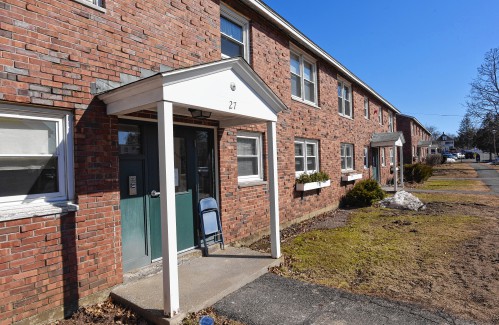
Guest columnists Ellen Attaliades and Lynn Ireland: Housing crisis is fueling the human services crisis
Vacancies at programs operated by human services providers — despite some progress over the last two years — are still much too high. More than one in four direct support professional positions in adult residential and day programs for people with...
 My Turn: April is second chance month
My Turn: April is second chance month
 My Turn: Judgmental about malaise
My Turn: Judgmental about malaise
 Ahmad Esfahani: Aiding and abetting and middle school angst
Ahmad Esfahani: Aiding and abetting and middle school angst
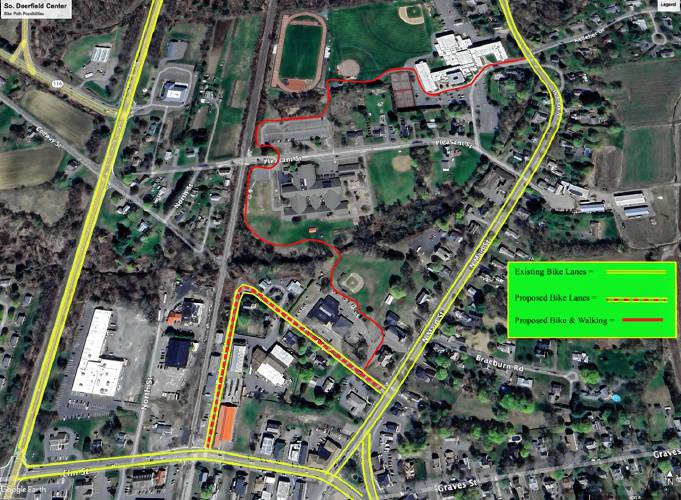 Greg Franceschi: Support bike lanes and walking paths in South Deerfield
Greg Franceschi: Support bike lanes and walking paths in South Deerfield

Police Logs

Athol Police Logs: March 12 to March 19
ATHOL POLICE LOGSTuesday, March 126:45 p.m. - Male party into the lobby regarding a shop vac he lent to someone and they are refusing to give it back. Party was advised of his options. Attempted to contact involved party, negative contact, a voicemail...
 Athol Police Logs: Feb 19 to Feb. 27
Athol Police Logs: Feb 19 to Feb. 27
 Athol Police Log Feb. 4-18
Athol Police Log Feb. 4-18
 Orange Police Log 12/1-13
Orange Police Log 12/1-13
 Athol Police Log 11/8-26
Athol Police Log 11/8-26
Arts & Life

Sounds Local: A rock circus returns to Turners Falls: The Slambovian Circus of Dreams brings the fun Friday night at the Shea
The circus is coming to town, and not the kind with elephants and clowns. I’m talking about the Slambovian Circus of Dreams, a rock group from the Hudson Valley in New York that makes music as unique as its name. The band, which has frequently...
Obituaries
 Mary M. Thompson
Mary M. Thompson
Mary M. (Powers) Thompson Dade City, FL - Mary M. (Powers) Thompson passed away unexpectedly on Sunday, April 14, 2024. She was born at Langley Air Force Base, in Hampton VA, on February 17, 1968, the daughter of Robert H. and Joan (Lint... remainder of obit for Mary M. Thompson
 Nancy C. Skowrowski
Nancy C. Skowrowski
Nancy C Skowronski Royalston, MA - Nancy C Skowronski, born in Worcester, MA on January 1, 1943, lived a captivating life, filled with vibrant memories and impactful experiences that created a lasting legacy. A resident of Royalston, Mas... remainder of obit for Nancy C. Skowrowski
 Robert E. Thayer
Robert E. Thayer
Robert E. "Bob" Thayer Athol, MA - ATHOL - Robert E. "Bob" Thayer, 90 of Athol passed away Sunday, April 14, 2023, in the Athol Hospital. He was born on July 13, 1933, the son of Robert H. Thayer and Louise E. (King) Thayer. Bob graduat... remainder of obit for Robert E. Thayer
 Chris N. Boyle
Chris N. Boyle
8/5/1956 - 4/11/2024 ORANGE, MA - Chris Boyle, beloved father and husband, passed away on April 11, 2024 at home. Chris led a life of unwavering dedication to his family, a steadfast commitment to the land he cherished, and a love for ... remainder of obit for Chris N. Boyle

 Parents question handling of threat at Erving Elementary School
Parents question handling of threat at Erving Elementary School
 A Page from North Quabbin History: Women of Royalston display
A Page from North Quabbin History: Women of Royalston display
 Spilka pledges ‘comprehensive climate bill’ in Senate
Spilka pledges ‘comprehensive climate bill’ in Senate
 North Quabbin Notes, April 23
North Quabbin Notes, April 23
 Mass. saw nearly 200 percent rise in antisemitic incidents last year
Mass. saw nearly 200 percent rise in antisemitic incidents last year
 Shelter money fading, but ‘not at the end of the line’
Shelter money fading, but ‘not at the end of the line’
 With eye toward teaching firearm safety, Mahar’s Junior ROTC adding air rifles
With eye toward teaching firearm safety, Mahar’s Junior ROTC adding air rifles
 Rescuing food and feeding people: Rachel’s Table programs continue to expand throughout western Mass
Rescuing food and feeding people: Rachel’s Table programs continue to expand throughout western Mass A day to commune with nature: Western Mass Herbal Symposium will be held May 11 in Montague
A day to commune with nature: Western Mass Herbal Symposium will be held May 11 in Montague Speaking of Nature: ‘Those sound like chickens’: Wood frogs and spring peepers are back — and loud as ever
Speaking of Nature: ‘Those sound like chickens’: Wood frogs and spring peepers are back — and loud as ever Hitting the ceramic circuit: Asparagus Valley Pottery Trail turns 20 years old, April 27-28
Hitting the ceramic circuit: Asparagus Valley Pottery Trail turns 20 years old, April 27-28